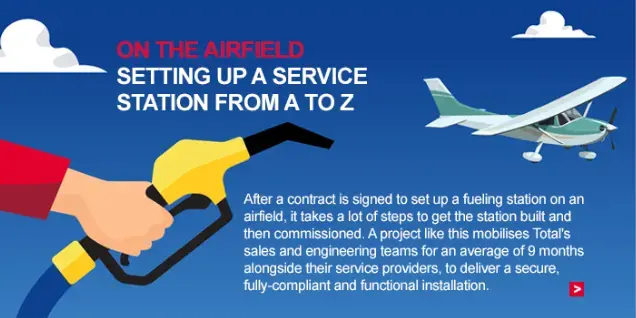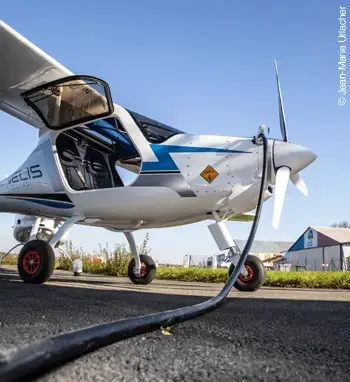In partnership with Titan Aviation, TotalEnergies Aviation had already committed to more sustainable refuelling with its hybrid refuelling trucks. Now, even greener models are emerging. These all-electric vehicles make “net zero emissions” an attainable goal. A major step towards decarbonizing the industry.
A wide range of electric refuelling vehicles
"We’re aiming to build products that deliver high environmental performance while improving ergonomics and safety," explains Stéphane Hecky, Operations Director of the Pourprix Group, which owns Titan Aviation. The company has been working alongside TotalEnergies Aviation for several years to develop zero-emission electric vehicles. Two models have already been delivered and another is in the development pipeline.
The world's first all-electric refueller, the Titan e-RRX is designed for medium-sized airports like Lyon Bron or Avignon. Carrying a tank with a capacity ranging from 5,000 to 20,000 litres, this model is now fully operational. The first vehicle with a capacity of 20,000 litres has been in operation by TotalEnergies Aviation at Le Bourget since mid-April. This model features a digital MMI called EZ Control, which facilitates the work of the operators and collects data for maintenance and safety analysis.
The Titan e-HD is a dedicated hydrant dispenser for airport hubs with a hydrant system. Using this network, it is routinely capable of a refuelling throughput of up to 230m3 an hour. TotalEnergies Aviation is planning to use the Titan e-HD at Amsterdam’s international Schiphol airport.
Finally, the Titan SPR-Xe, a large-capacity refuelling truck (20,000 to 65,000 litres), is currently under development. "Seven engineers are working on this project. We are now at the digital modelling stage . The first prototype is scheduled to be assembled early next year and then tested before being commissioned."
The benefits of electric refuelling
Electricity delivers a lot of benefits. Electrical energy contributes to decarbonizing airports, not only because refuelling vehicles no longer emit GHGs when operating, but also because it has a positive impact on chassis maintenance operations: no more used oil to be collected and processed.
In addition, switching to electric power promises beneficial opportunities in terms of ergonomics and use for the operators, who are no longer exposed to noise and exhaust emissions. “This is a step forward in terms of health and safety," enthuses Joël Boiteux, head of the TotalEnergies Aviation Vehicle Department. "Both the operators and TotalEnergies Aviation's customers have given the Le Bourget model a very clear thumbs-up. They find it intuitive, environmentally friendly, and quiet.”
This solution also offers a high level of reliability, as these refuellers have far fewer mechanical components. "It’s especially efficient in terms of reducing our maintenance costs: maintenance is simpler and less expensive."


